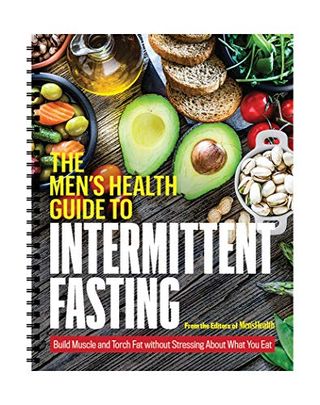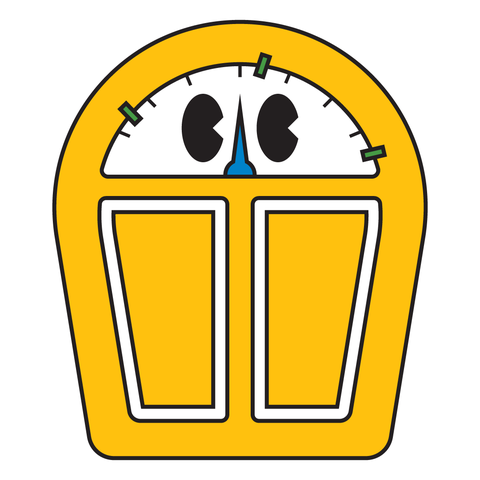
IT WAS this past spring, and Jack Dorsey, the tech entrepreneur who cofounded Twitter and Square, was on biohacker Ben Greenfield’s podcast to divulge the newest tool that helped him work the long, demanding, intensely focused hours required to run not one but two billion-dollar companies. “Fasting has been a new dimension,” he said. “For the past two years, I have only had dinner. The other thing I’ve been playing with recently is…I’ll go from Friday till Sunday. I won’t have dinner on Friday. I won’t have dinner or any meal on Saturday. And the first time I’ll eat will be Sunday evening.”
Dorsey is another high-profile face in a swelling movement of self-proclaimed “top performing” men for whom when to eat is now just as important as what to eat. A-Rod, Jimmy Kimmel, Hugh Jackman, and Chris Hemsworth have all done intermittent fasting. Not to mention average guys—fasting books are ticking up the sales ranks of Amazon, and WeFast, an online network of people who connect over their lack of meals, has around 20,000 members.
Going anywhere from 12 to 72-plus hours without a single calorie, these guys believe, is the ideal diet strategy for the demands of the modern world. Intermittent fasting allows humans to get more shit done in less time (“It’s like time slows down,” Dorsey said of his first long fast) while also helping them live longer or cut weight. For some it’s a lifestyle—short fasts every day—whereas others tackle longer fasts weekly, monthly, or annually to capture some magic or to “reset” after a bout of unhealthy eating or drinking.
But not everyone agrees that there’s any magic or benefits to be had. Not everyone even agrees on what fasting is. “Intermittent fasting” or “time-restricted eating” means eating all of your daily calories within a specified window. What that window should be, however, is up for grabs.
Responses to Dorsey’s fasting regimen came fast and hard, with people accusing him of both promoting and suffering from disordered eating, and of peddling pseudoscientific nonsense. Except he and other fasters aren’t onto anything new. They’re just more guys in a long line of people who have used time away from food to enter a new level of religious experience, biological revision, and physical metamorphosis, says Stanford researcher Adrienne Bitar, Ph.D., author of Diet and the Disease of Civilization. Abstinence is having a moment across the culture and lifestyle board—you probably know someone doing a fast in an effort to earn their way to something that’s missing. Like control. Detoxification, whatever that means. Self-improvement. A new way to be righteous. Or proof that they’re stronger than a sufferfest.
Is Intermittent Fasting Good for Your Health?
The Internet spoons out plenty of reported benefits of food fasts. But beyond participating in a social trend, is intermittent fasting good for you? Are people really getting anything out of it besides hunger pangs? We looked into the claims about what fasting could do for you.
The Claim: Fasting Gives You More Focus

Sarah Leituala
The facts: Fasting adopters say that going without food allows them to do more work—and do it better—than they’ve ever been capable of, and it’s not just because they spend less time dealing with meals.

.
Get the Ultimate Guide to Intermittent Fasting
amazon.com
$24.95
SHOP NOW
It may have something to do with adrenaline, sleep, or both. You’ve fully metabolized your last meal after ten to 16 hours, depending on how much you ate. That’s when your body transitions from “fed” to “fasted,” releasing a symphony of hormones including testosterone, cortisol, and a host of lesser-known biochemicals that signal your body to mobilize and burn energy stores, says biochemist Trevor Kashey, Ph.D., founder of Trevor Kashey Nutrition. “Your body generates energy by burning fat, while arousing it with adrenaline, which increases your alertness and focus.”
Other research shows that people who stop eating a few hours before bed sleep better, says Satchin Panda, Ph.D., author of The Circadian Code. That could lead you to be more focused the next day.
The Claim: Fasting Makes You Healthier

Sarah Leituala
The facts: From Hippocrates in 400 b.c. to American doctors in the 1800s, medical minds have theorized that fasting could cure diseases like cancer. These guys may have been too bullish, but some science suggests that fasting could have an effect on chronic disease.
It may reduce inflammation and improve blood-sugar and lipid levels. And studies from the University of Wisconsin and the National Institute on Aging found that calorie restriction—a form of fasting, since there are long hours between feedings—reduced heart disease and diabetes in monkeys. Restricted eating also lowered cancer rates in the monkeys, possibly by leveraging an evolutionary mechanism that cleans your body, Panda says. When your body flips into fasted mode, it doesn’t burn its finest tissues for energy. “We get rid of a lot of dead and damaged cells,” he adds.
Is fasting much better for your overall health than a normal, balanced diet? Probably not. “Fasting doesn’t make you healthy so much as overeating can make you unhealthy,” says Kashey.
The Claim: Fasting Helps You Lose Weight

Sarah Leituala
The facts: Wars are raging over which intermittent fasting diet is “best,” but the research community does agree on one thing: If you burn more calories than you eat, you will lose weight. Because the average person in the U. S. eats three meals a day, plus snacks, nixing some of these can cut calories and result in weight loss. “It’s another way to set parameters around eating,” says MH nutrition advisor Chris Mohr, Ph.D., R.D. Let’s say you used to have a beer or ice cream before bed. If you stop eating after 8:00 p.m., “that’s a big chunk of calories automatically removed from your diet.” You just have to make sure you don’t overindulge in your eating window. A recent study in the American Journal of Clinical Nutrition found that fasting diets and plans that had you simply eat fewer calories led to equal weight loss.

.
So What’s the Best Way to do Intermittent Fasting?
Source: Read Full Article